Alberta's renewable energy pause could become lingering stumble, observers say
WE DON'T NEED TO WORRY ABOUT ADVESARIES WHEN WE HAVE DANIELLE SMITH & UCP/TBAThe Canadian PressSat, December 16, 2023  EDMONTON — It was just supposed to be a pause, a breather for an overburdened regulator and concerned public to catch up with an industry growing beyond expectations.But for those who study the renewable electricity industry, as well as for those in it, the six-month moratorium on project approvals slated to come off in February could turn out to be a crucial stumble that costs Alberta its lead, perhaps forever."It's unlikely to think this kind of pause and decision will have no impact on investment," said Sara Hastings-Simon of the University of Calgary's School of Public Policy. "It's hard to know how large (the impact) is … but we're in a competitive market to attract capital."As recently as last summer, the sun shone bright and the breezes were favourable for Alberta renewables. The Business Renewable Centre, a group that links buyers and producers of renewable energy, said Alberta was on track to see $3.7 billion worth of construction by the end of this year, creating more than 4,500 jobs.Then, in August, Alberta's United Conservative government announced a moratorium on approvals for all wind, solar and geothermal projects greater than one megawatt. The announcement was made suddenly, without consultation.Government officials initially said the pause was made at the request of rural municipalities and the Alberta Utilities Commission. When it turned out no such requests had been made, the move was justified by concerns over reclamation, destruction of farmland and despoiling of what the government called "pristine viewscapes."Premier Danielle Smith has since expressed public doubts over renewables, calling them a "fantasy" and suggesting they are unreliable and expensive. She mused about creating a Crown corporation specifically to fund natural gas-fired power generation."They've been pretty clear in their public messaging," said Tim Weis, a professor in the University of Alberta's engineering faculty. "There seems to be a lot of direct attacks on renewables."It has eroded trust, said Claude Mindorff of PACE Canada, a company behind several solar projects in Alberta, including a stalled 14-megawatt installation outside of the village of Caroline."I feels like there's underlying agendas on the part of the government," he said.Weis said the pause's end date of Feb. 24 doesn't necessarily signal a return to normal.The Alberta Utilities Commission has another month after that to complete an inquiry into the industry. Then the government has to digest and implement recommendations."If (it has) announced that we need another two or three years to figure out the rules, that's going to add to the uncertainty," Weis said.Meanwhile, other jurisdictions are making moves. Nova Scotia, Ontario, Quebec and British Columbia are opening their doors to more renewable power — not to mention the vast U.S. appetite for investment capital.The favourable economics of renewable power in Alberta could also be eroded by increased costs, whether from new regulatory requirements that force companies to front-load cleanup costs or competition for labour and materials as the backlog of projects breaks."That may move (power purchase agreements) out of an economic range," said Jorden Dye of the Business Renewables Centre.Hastings-Simon said installing enough solar power for Alberta to have a net-zero grid would consume about 0.1 per cent of its arable land."We certainly need to be thoughtful about local land use impacts," she said. "But as far as the concern around competition for land, the scale of land available suggests that's not a serious concern."The Alberta Utilities Commission requested a report on agricultural effects. It found farming can continue around renewable energy sites, from pasturing animals to growing crops.The commission also asked for a report into how giant windmills might affect the province's much-loved landscapes.That report looked at 20 different studies of how wind farms affected real estate values. Eight studies showed no effect, six showed a negative effect while the rest showed mixed results.The very idea of "viewscapes" rules makes investors nervous, said Dye."It's too nebulous to be a regulatory concept."As for decommissioning and remediating costs, developers say that already informs their budgets. Mindorff said a pause wasn't needed to firm up rules around something companies were already doing.He said placing roadblocks in front of an industry that hasn't caused any problems is "unbelievable gall.""Without dealing with the decommissioning of oil and gas sites, how can you with a straight face say the renewable energy industry should deal with decommission?"Another report for the utilities commission concluded that solar and wind facilities have significant, although variable, salvage value. Nor does renewable power create the chemical contamination concerns of oil and gas sites.The pause will come off sooner or later and new rules will be laid down. Alberta's abundant sun and wind as well as its open-entry electricity market are powerful motivators for companies to build here.Josh Aldrich, spokesman for Alberta's Ministry of Affordability and Utilities, said the proof is in the number of companies that want to build in the province. The number of projects in the Alberta Utilities Commission approvals queue has grown by almost 50 per cent."This is a strong indication that investor confidence remains high in Alberta’s renewable energy industry," he said in an email."Renewable electricity projects will continue to play an important role in Alberta’s electricity mix. Investors, municipalities and industry have all been looking for a more measured approach to renewables development and the inquiry will ensure we continue to see strong investment."However, investors around the world have taken notice of what Alberta did, said Hastings-Simon."It's less about the rules themselves and more about the process," she said."It's hard to see how something like this wouldn't enter into the calculations that investors are doing when they choose where to put their money."We're running an actual experiment. We'll see the results when we get there."This report by The Canadian Press was first published Dec. 16, 2023.Bob Weber, The Canadian Press
EDMONTON — It was just supposed to be a pause, a breather for an overburdened regulator and concerned public to catch up with an industry growing beyond expectations.But for those who study the renewable electricity industry, as well as for those in it, the six-month moratorium on project approvals slated to come off in February could turn out to be a crucial stumble that costs Alberta its lead, perhaps forever."It's unlikely to think this kind of pause and decision will have no impact on investment," said Sara Hastings-Simon of the University of Calgary's School of Public Policy. "It's hard to know how large (the impact) is … but we're in a competitive market to attract capital."As recently as last summer, the sun shone bright and the breezes were favourable for Alberta renewables. The Business Renewable Centre, a group that links buyers and producers of renewable energy, said Alberta was on track to see $3.7 billion worth of construction by the end of this year, creating more than 4,500 jobs.Then, in August, Alberta's United Conservative government announced a moratorium on approvals for all wind, solar and geothermal projects greater than one megawatt. The announcement was made suddenly, without consultation.Government officials initially said the pause was made at the request of rural municipalities and the Alberta Utilities Commission. When it turned out no such requests had been made, the move was justified by concerns over reclamation, destruction of farmland and despoiling of what the government called "pristine viewscapes."Premier Danielle Smith has since expressed public doubts over renewables, calling them a "fantasy" and suggesting they are unreliable and expensive. She mused about creating a Crown corporation specifically to fund natural gas-fired power generation."They've been pretty clear in their public messaging," said Tim Weis, a professor in the University of Alberta's engineering faculty. "There seems to be a lot of direct attacks on renewables."It has eroded trust, said Claude Mindorff of PACE Canada, a company behind several solar projects in Alberta, including a stalled 14-megawatt installation outside of the village of Caroline."I feels like there's underlying agendas on the part of the government," he said.Weis said the pause's end date of Feb. 24 doesn't necessarily signal a return to normal.The Alberta Utilities Commission has another month after that to complete an inquiry into the industry. Then the government has to digest and implement recommendations."If (it has) announced that we need another two or three years to figure out the rules, that's going to add to the uncertainty," Weis said.Meanwhile, other jurisdictions are making moves. Nova Scotia, Ontario, Quebec and British Columbia are opening their doors to more renewable power — not to mention the vast U.S. appetite for investment capital.The favourable economics of renewable power in Alberta could also be eroded by increased costs, whether from new regulatory requirements that force companies to front-load cleanup costs or competition for labour and materials as the backlog of projects breaks."That may move (power purchase agreements) out of an economic range," said Jorden Dye of the Business Renewables Centre.Hastings-Simon said installing enough solar power for Alberta to have a net-zero grid would consume about 0.1 per cent of its arable land."We certainly need to be thoughtful about local land use impacts," she said. "But as far as the concern around competition for land, the scale of land available suggests that's not a serious concern."The Alberta Utilities Commission requested a report on agricultural effects. It found farming can continue around renewable energy sites, from pasturing animals to growing crops.The commission also asked for a report into how giant windmills might affect the province's much-loved landscapes.That report looked at 20 different studies of how wind farms affected real estate values. Eight studies showed no effect, six showed a negative effect while the rest showed mixed results.The very idea of "viewscapes" rules makes investors nervous, said Dye."It's too nebulous to be a regulatory concept."As for decommissioning and remediating costs, developers say that already informs their budgets. Mindorff said a pause wasn't needed to firm up rules around something companies were already doing.He said placing roadblocks in front of an industry that hasn't caused any problems is "unbelievable gall.""Without dealing with the decommissioning of oil and gas sites, how can you with a straight face say the renewable energy industry should deal with decommission?"Another report for the utilities commission concluded that solar and wind facilities have significant, although variable, salvage value. Nor does renewable power create the chemical contamination concerns of oil and gas sites.The pause will come off sooner or later and new rules will be laid down. Alberta's abundant sun and wind as well as its open-entry electricity market are powerful motivators for companies to build here.Josh Aldrich, spokesman for Alberta's Ministry of Affordability and Utilities, said the proof is in the number of companies that want to build in the province. The number of projects in the Alberta Utilities Commission approvals queue has grown by almost 50 per cent."This is a strong indication that investor confidence remains high in Alberta’s renewable energy industry," he said in an email."Renewable electricity projects will continue to play an important role in Alberta’s electricity mix. Investors, municipalities and industry have all been looking for a more measured approach to renewables development and the inquiry will ensure we continue to see strong investment."However, investors around the world have taken notice of what Alberta did, said Hastings-Simon."It's less about the rules themselves and more about the process," she said."It's hard to see how something like this wouldn't enter into the calculations that investors are doing when they choose where to put their money."We're running an actual experiment. We'll see the results when we get there."This report by The Canadian Press was first published Dec. 16, 2023.Bob Weber, The Canadian Press
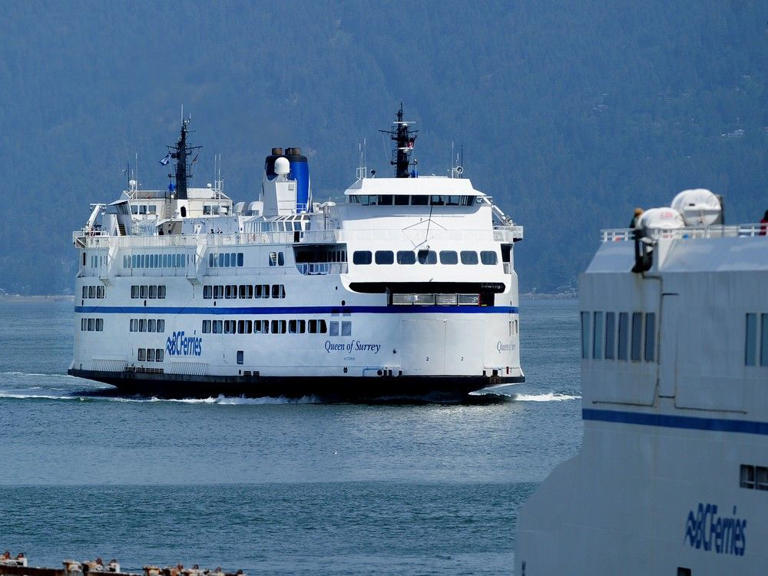
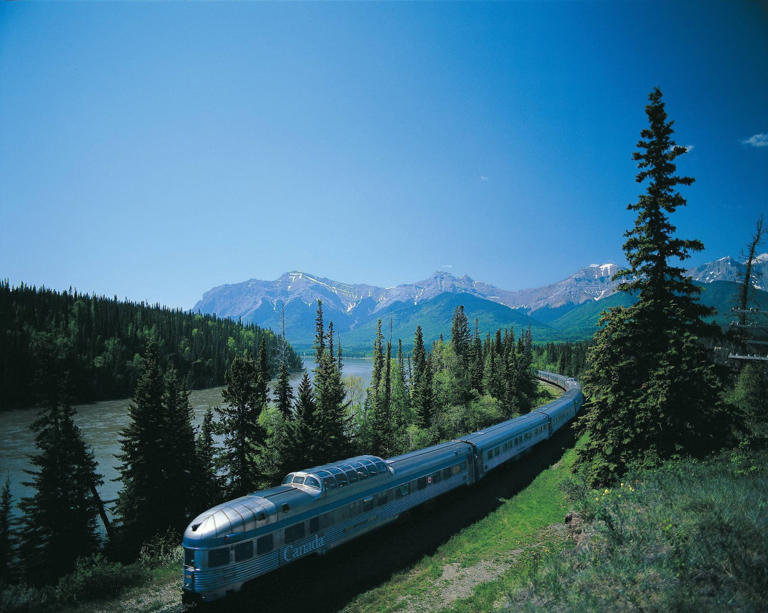
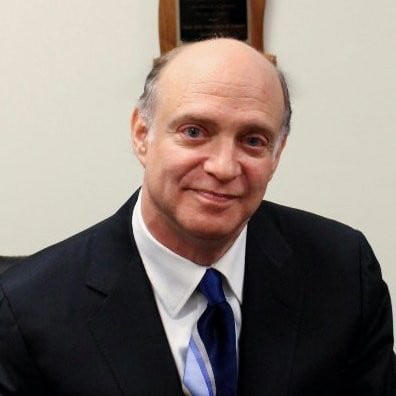
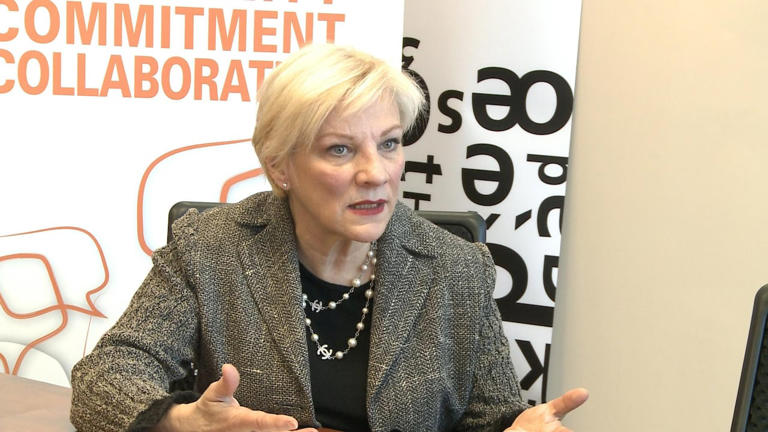
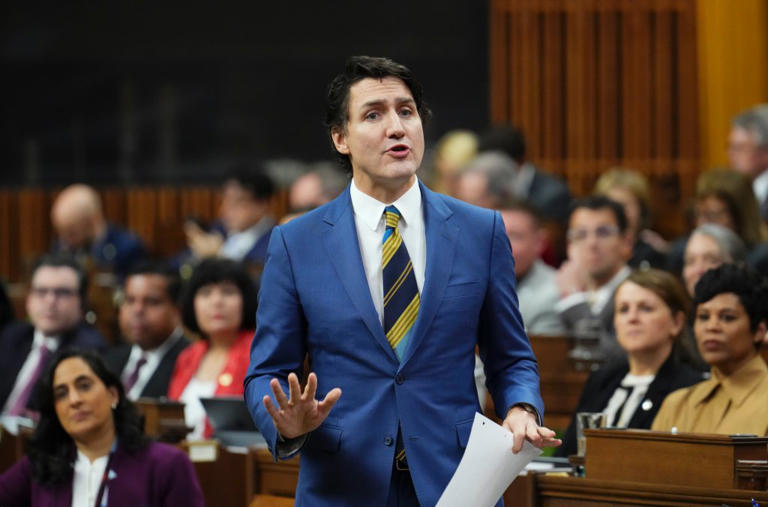
 Global News
Global News






